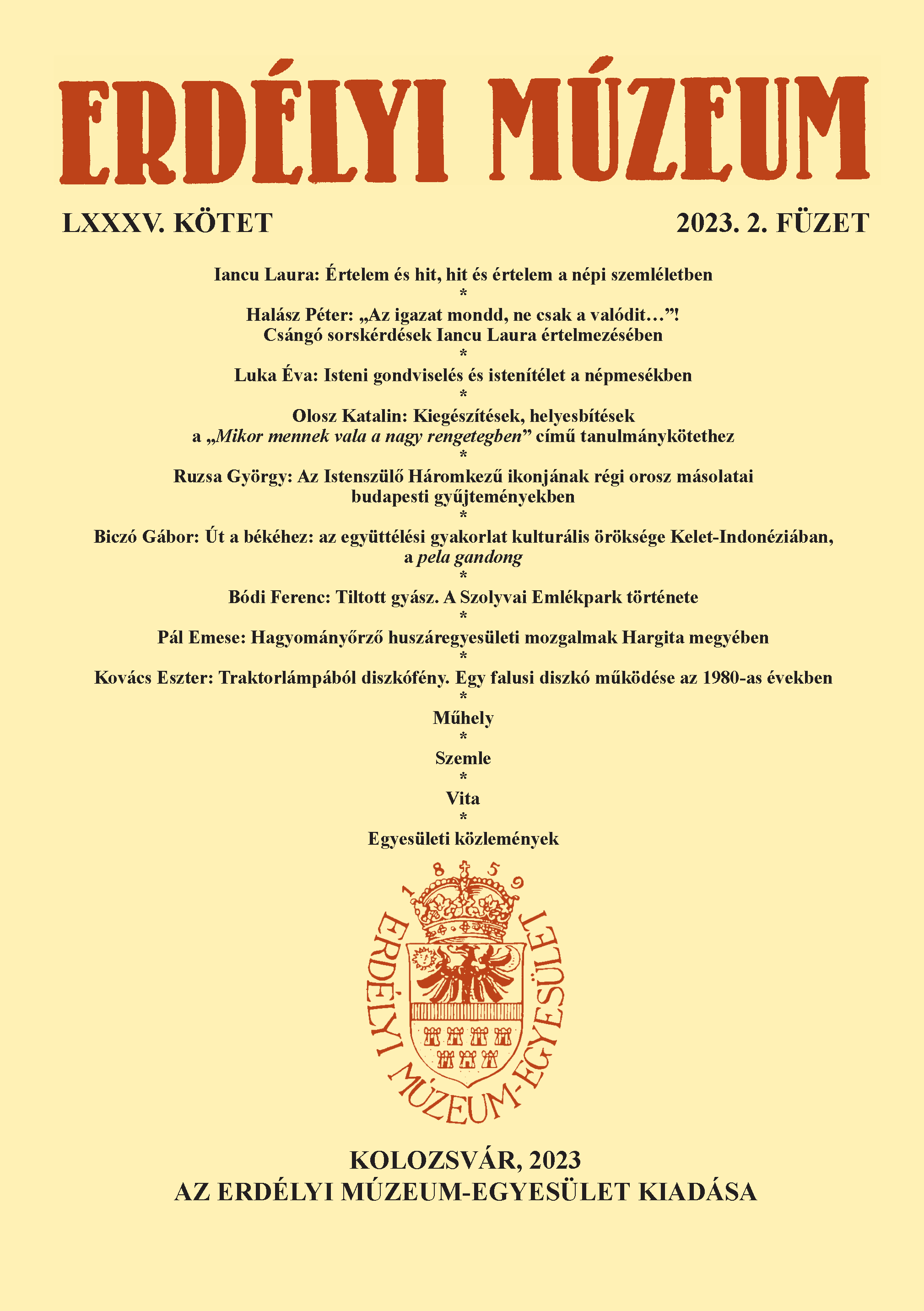Tiltott gyász
Forbidden Mourning
The History of Szolyva Memorial Park
Author(s): Ferenc BódiSubject(s): Cultural history, Local History / Microhistory, Cultural Anthropology / Ethnology, Culture and social structure , Post-War period (1950 - 1989)
Published by: Erdélyi Múzeum-Egyesület
Keywords: Kárpátalja/Transcarpathia; Szolyva Memorial Park; Hungarian nationality; malenky robot; forced labour camp; cultural memory; regime change; dictatorship
Summary/Abstract: This study describes an “ideal type” story of a Soviet concentration camp set up in Szolyva, Kárpátalja (Transcarpathia, the Zakarpatska Oblast). During the Soviet regime it was forbidden to remember the victims of deportations, who died in the concentration camps in the Soviet union after 1945. When the communist regime collapsed, the possibility for remembrance opened up to the public to uncover the story of tens of thousands of people who had been deported to Soviet labour camps for “malenky robot” and of whom many never returned home. For this reason, the zone of oblivion turned into the place of remembrance, where the memory of the Hungarian and German victims was preserved for posterity. The local communities of Kárpátalja were at least able to mourn and remember all their loved ones who became the victims of the invaders. Therefore, the Hungarian minority got a chance for survival in the present by their recovered and saved collective memory.
Journal: Erdélyi Múzeum
- Issue Year: LXXXV/2023
- Issue No: 2
- Page Range: 78-90
- Page Count: 13
- Language: Hungarian

